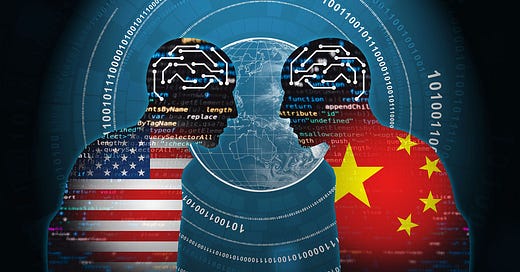America Wants To Strengthen Its AI To Avoid Losing Its Technological Superiority Over China
America must find a way to make better use of its enormous financial resources in the military field.
The world's leading military power will soon have a “Chief Digital and Artificial Intelligence Officer” (CDAO). On December 8, 2021, Kathleen Hicks, Joe Biden's deputy secretary of defense, announced the creation of this position, which goes hand in hand with a major overhaul of all Pentagon services dealing with digital technologies.
Beginning February …
Keep reading with a 7-day free trial
Subscribe to Sylvain Saurel’s Newsletter to keep reading this post and get 7 days of free access to the full post archives.




